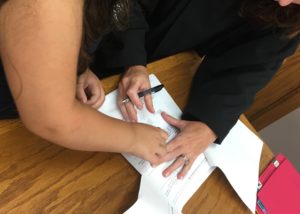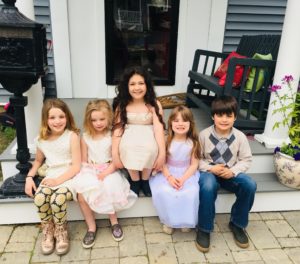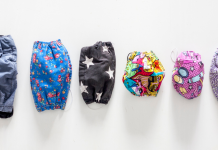As I write this, four of the six children in my home were born to another mother. The details of their circumstances are each very different. However, they do have a common link. They were adopted from foster care. Subsequently, we talk openly of their adoption. In addition, we speak of why they do not live with their birth families.
Why we talk about our adoption.
The reasons why we talk about our adoption is simple. It comes naturally to us. My oldest daughter and I sat together on a small loveseat in the office of a medical specialist. The nurse asked all of the typical questions, then casually handed me a white folded paper. I opened it to find six words I know too well.
“Does she know she is adopted?”
I smiled. It was thoughtful of the nurse in inquire. When my daughter was little doctor’s would spell or offer covert hand gestures. Truthfully I was sometimes confused myself. The nurse’s questions had moved onto family history inquiries. She knew the conversation might become complicated. My daughter leaned in, asking what the note said.
“The note asks if you are adopted.” I said, showing her the paper. “The nurse wanted to be sure you were aware so that you were not caught off guard.” My daughter smiled, too. Next she nodded. Then she recounted for the woman that she was indeed adopted. In addition she proudly told her that we knew the basic medical history of her birth parents.
Sure, I tell my children all the typical encouraging adoption quotes:
- Superman, Batman, and Spiderman Man were all adopted.
- Our family is defined Love not DNA
- You were chosen.
- You grew in Mommy’s heart, not in her tummy.
- The adoption took time, the love was instant.
- Real Parents are any parents who are not imaginary.
Truly, I could rattle them off all day.
However, charming quotes are only part of the picture. For every family that is created from adoption, another is often left broken. As stated by Jody Landers “the magnitude of that tragedy and the depth of that privilege are not lost to me.” An integral part of foster care isn’t just caring for children, but also supporting those that do.
The reality is that talking about adoption is what makes it healthy.
 .
.
After a quick appraisal of the ages of my family, it is evident to most people that my children aren’t all biologically related. I can almost see the gears of inquiry churning in the minds of curious people. Inevitably, others ask which children are adopted. However there are respectful ways to talk about adoption.
I’ve learned to omit words like “birth child” and “adopted child”, except when absolutely necessary. Instead I simply use “child”. We treat everyone in our home equally. They are all loved equally with no distinctions as to who was born into the family. We never refer to anyone being “put up for adoption”. For my ears, the words are not unlike fingernails on a chalk board. Instead adults choose to “make an adoption plan” for the child.
Like other developmental milestones, children recognize and understand different elements of adoption as they grow. When adoptive parents speak honestly and freely about adoption from a young age, the information isn’t a cause for shock or dismay.
As a result we continue to talk about our adoptive past. We also talk about the future, and how blessed we are.
There are a great deal of misconceptions about adoption, and about adoptive families in general.
Above all else, talking about adoption is a lifelong process. Dialogue is best kept open. While our family may have strong feelings surrounding the dialogue, there really is no right or wrong way to talk about adoption. Instead always be available to hear what the child is saying.











